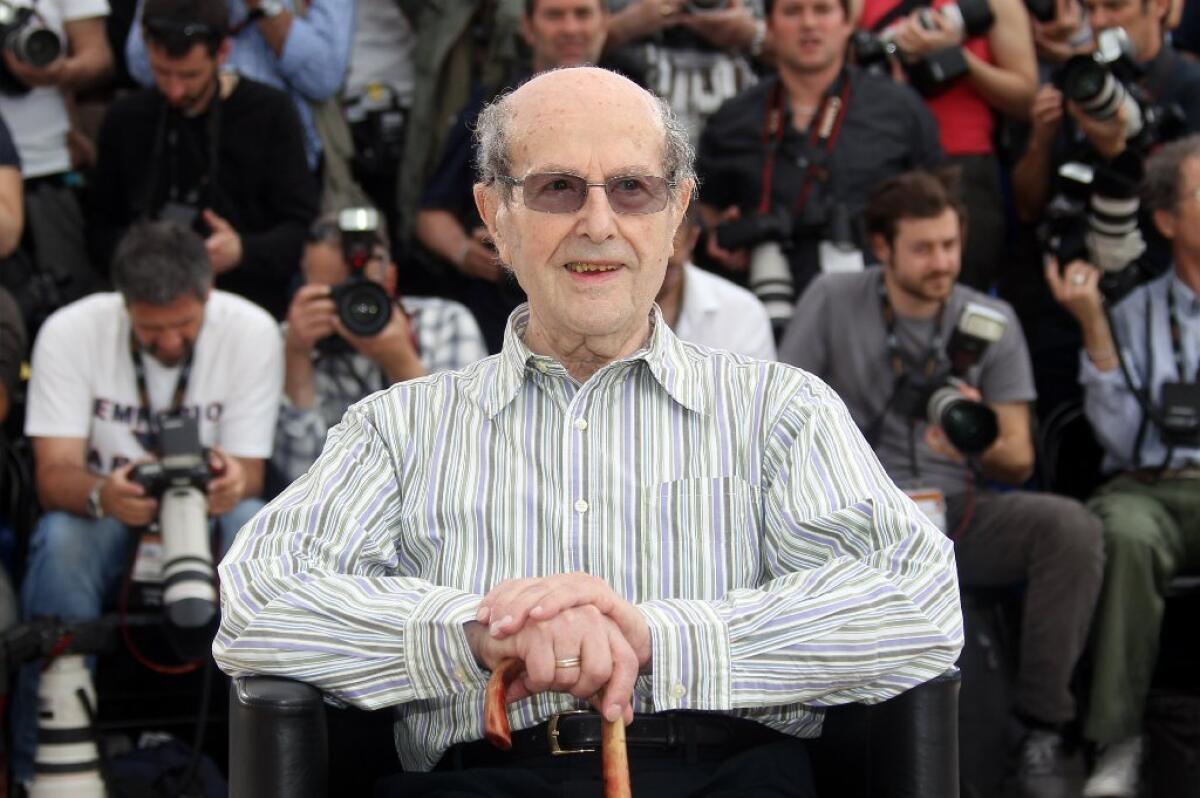Manoel de Oliveira dies at 106; Portuguese filmmaker a Cannes regular

Manoel de Oliveira, a celebrated Portuguese movie director believed to be the world’s oldest filmmaker, has died. He was 106.
The city council of Porto, where Oliveira was born and lived, announced his death Thursday on its website. It did not provide further details. The Portuguese Parliament sent its condolences to his family.
Oliveira’s last film, a short feature called “The Old Man of Belem,” had its premiere in November in Porto and was shown at the Venice Film Festival.
Oliveira’s career began with a silent documentary about Porto, Portugal’s second-largest city, in 1931. He made his first feature-length movie in 1942, and at age 76 he was directing roughly a film every year.
He was a regular at Cannes, where he was awarded a Golden Palm for lifetime achievement in 2008, and the Venice Film Festival twice gave him Career Golden Lions, in 1985 and 2004.
Oliveira’s later work drew the interest of mainstream actors. His 1995 film “The Convent” starred John Malkovich and Catherine Deneuve in a romantic mystery.
“Manoel de Oliveira is very, very special,” Deneuve said in 2005, when Oliveira was already approaching 100. “He works all the time, he writes the script during the night.”
In 1996 at the Venice Film Festival, Oliveira said he had no plans to slow his work rate. “I’m in a hurry. I have too many stories to tell,” he said.
His last feature film, “Gebo and the Shadow,” starring Michael Lonsdale, Claudia Cardinale and Jeanne Moreau, came out in 2012.
Oliveira was born Dec. 11, 1908. A Portuguese pole vault champion and a racing driver in his youth, his movie career began with his 18-minute silent documentary “Hard Labor on the River Douro,” about the harsh daily life conditions of river-workers in Porto. The work is regarded as a classic of avant-garde cinema.
His first feature-length movie, “Aniki-Bobo,” was a hit in Portugal but its avant-garde neo-realism drew the attention of the then-dictatorship’s secret police, known by its acronym PIDE, which suspected him of subversion.
The PIDE later held Oliveira without charge and interrogated him for 10 days before releasing him. The government of Antonio Salazar refused to give him funding for his film projects and the censors rejected his scripts.
“I never had any political urges or activity,” he said, “but they hated me all the same.”
He is survived by his wife, Maria Isabel, four children and numerous grandchildren and great-grandchildren
Barry Hatton writes for the Associated Press.
More to Read
Start your day right
Sign up for Essential California for the L.A. Times biggest news, features and recommendations in your inbox six days a week.
You may occasionally receive promotional content from the Los Angeles Times.






